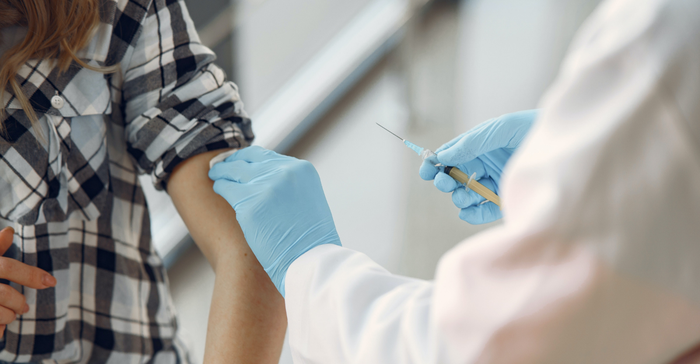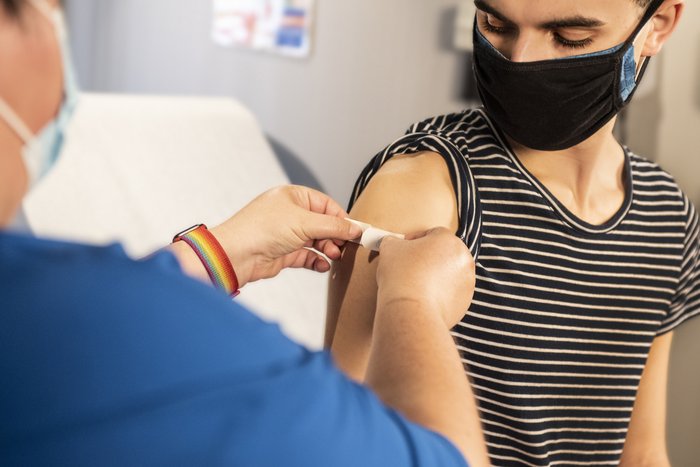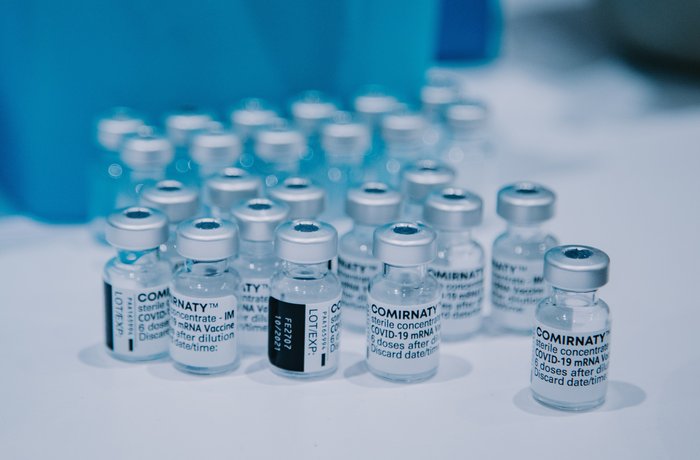Key points:
- The vaccines have all passed stringent safety tests before being approved. They are not live vaccines and there is no evidence that they would lead to rejection of a kidney transplant.
- People with kidney disease on immunosuppressants may have a weaker response to the vaccines, but kidney doctors recommend that it is still important to have all the available vaccinations. Some protection is better than none.
- Even after having the vaccine, people at highest risk may want to continue to follow some precautionary measures.
Seasonal booster vaccines
- The government have announced a spring booster Covid-19 vaccine will be offered to the following groups later in April 2024:
- adults aged 75 years and over
- residents in a care home for older adults
- individuals aged 6 months and over who are immunosuppressed
- The spring 2024 booster should be offered around six months after the last vaccine dose and with a minimum gap of three months.
- Eligible people will be sent an invitation to book a booster, with details on how they can get the vaccine.
- In England, the online booking system will be available from 15 April 2024.
- Household contacts of people who are immunosuppressed will not be offered the spring 2024 booster. The JCVI have focused this seasonal booster on people most at risk of severe outcomes from Covid-19 and, as time passes, may have reduced immunity from their autumn/winter 2023 booster.
Who can get a Covid-19 vaccine?
Here is information from each UK country about their vaccine programme and how to access appointments.

Covid-19 vaccine campaign FAQs
If I have a weakened immune system and do not respond well to vaccines, why is it important to receive booster doses when they are offered?
Even though you might not develop full immunity, you may continue to develop some immunity, so even a limited response to a further dose should help to reduce your risk of being severely ill or admitted to hospital if you catch Covid-19. Repeated vaccinations will gradually improve and maintain your level of antibodies and enhance the other parts of your immune system that protect you from Covid-19 infection.
Is it safe to get so many doses of the Covid-19 vaccine?
Covid-19 vaccination is safe and has been approved for use by the Medicines and Healthcare Products Regulatory Agency (MHRA), which regulates safety, as well as recommended by the Joint Committee on Vaccination and Immunisation (JCVI). The vaccines used by the NHS have been rigorously tested and multiple doses have been given across the UK and the world, with continued monitoring of safety.
What adjustments are being made to support people who are severely immunosuppressed attending walk-in vaccination appointments?
Vaccination sites have been asked to ensure that appropriate arrangements and reasonable adjustments are in place, such as priority lanes, to support people who are less able to queue, including those in higher-risk groups.
I have recently recovered from Covid-19. Do I still need to get vaccinated?
Yes. You can still get any vaccine doses you are due for extra protection, even if you have had Covid-19. Please check the NHS website for your country for the latest recommendations.
How can someone report an issue if they are struggling to access the vaccinations they need?
If an individual encounters a problem when trying to get a Covid-19 vaccine, it is important they report it so that the NHS can resolve the issue and improve services to prevent it happening again. There are a number of ways you can provide feedback or make a complaint. Information about how to contact NHS England is available here on their website.

How well do the vaccines work for kidney patients?
Evidence to date shows that far fewer fully vaccinated people with kidney disease become very ill and die should they contract Covid-19, than people who have not been fully vaccinated. It is therefore important to get all doses for which you are eligible.
Research has been looking at the levels of antibodies people have produced after vaccine doses. This can help our understanding of response to the vaccine but can’t give us the full picture of how well people are protected against Covid-19. This is because we do not know what level of antibodies are needed for good protection. There also other parts of the immune system that can help protect against the virus.
- People with CKD stage 4 and 5 and on dialysis
Research looking at antibody responses found people on dialysis and with chronic kidney disease (CKD) have responded well to the vaccine. Three doses or more are more likely to provide a good enough level of protection than two, so it is very important that people in this group have all of their vaccine doses.
- People who are immunosuppressed
People who are immunosuppressed may respond less well to the vaccine, but research shows that for each additional dose there will be more people who respond. A small number of people will not respond to additional doses, but they will not be harmed by having repeated doses. Therefore, it is very important that people who are immunosuppressed have all doses to secure their best chance of protection.
After the first three or more vaccine doses, research found four out of five recipients of solid organ transplants had detectable antibodies, and this proportion increases with further booster doses. Laboratory data also indicates that around 1 in 5 people with kidney disease who are immunosuppressed (and had not had a Covid-19 infection in the past) showed a T-cell response following vaccination.
People who had had Covid-19 were more likely to have an antibody response following vaccination. Younger transplant recipients with a well-functioning kidney are more likely to have a better response to the vaccine.
Please have a look at the recording and written summary of our Covid-19 Question Time Webinar on Monday 5 December 2022, where a panel of kidney doctors and researchers answered your questions on Covid-19, including a discussion of what research is telling us about vaccines.
What if I have produced no antibodies after multiple doses?
Researchers have reminded us that a lack of antibody response does not mean a lack of protection from severe disease and death from Covid-19. Antibodies are just one part of the immune response. There are many different types of antibodies and we also have T-cells, which are also important in the body’s immune response.
T-cells have a range of different functions within the immune system to help the body attack the virus in a number of different ways. It is not currently possible to buy a test for T-cells. The immune system is like a jigsaw, with the different parts coming together to protect the body. Looking at just one part of the jigsaw, such as antibodies, does not give the whole picture.
If you have not produced any antibodies after four or five doses, it is sensible to be cautious when you go out and about, but there is reason for optimism and many people who have no antibodies have caught Covid-19 and recovered well. Medicines are also available that are effective at treating immunosuppressed people with Covid-19.
How can I find out how much protection the vaccine gives me? Should I get an antibody test?
Unfortunately, at the moment it is not possible to determine exactly how well the vaccine is protecting a person against severe disease with Covid-19. We recommend speaking to your kidney doctor about your own circumstances. We do not recommend that individuals undertake private antibody testing without first discussing with your kidney doctor as they will not give a clear picture of how well protected you are from Covid-19.
In addition, there are many different types of antibodies, and most antibody tests will only test for one specific antibody, which will not give a full picture of your immune response. A positive antibody test does not necessarily mean a person is protected against Covid-19 and a negative test does not necessarily mean you are not protected.
If you do have an antibody test via your hospital kidney team, your doctor will be able to help explain what the results mean for you.
A new Government-funded research study called Stravinsky is opening, which aims to provide doctors, policymakers, and individuals with up-to-date information on the impact of Covid-19, and future Covid-19 booster vaccinations, on people who are immune suppressed. It will investigate whether an antibody test result can predict an individual's risk of severe Covid-19 infection. If you would like to register your interest in taking part in STRAVINSKY or you have any further questions, please email [email protected].

Are the vaccines safe? Should I be worried about how quickly the vaccines have been developed?
The vaccines are only approved for use once they have passed stringent safety tests. The speed of development might make people concerned, but corners have not been cut. During the development of the Covid-19 vaccines, regulators and researchers have worked together to avoid delays and funding was made available quickly.
Oxford University have published a short film entitled ‘How to make a vaccine in record time’.
Are there any side effects to the vaccines?
As with other vaccines, there may be mild and short-lasting side effects to the Covid-19 vaccine, such as having a sore arm or feeling tired for a day or two. These can be treated with paracetamol. There is no evidence that side effects are worse for people with underlying conditions such as kidney disease or based on any medication they are taking, or that the vaccines have an impact on kidney functioning.
If you have had a more severe reaction to a Covid-19 vaccine you can speak to your GP about referral to a specialist vaccine clinic for subsequent doses, where they will assess whether an alternative vaccine should be used.
The MHRA encourages people to report suspected side effects to the vaccine on their Yellow Card reporting site.
The Government have published information on what to expect after your Covid-19 vaccination.
Are the Covid-19 vaccines live? Could the vaccines cause rejection of my transplant?
None of the Covid-19 vaccines currently used are traditional “live” vaccines. The Oxford/AstraZeneca vaccine used an adenovirus, but its genes have been edited so it cannot replicate and cause infection.
Many thousands of people with solid organ transplants, of which many are kidney transplants, have received the Covid-19 vaccine. This has not shown any adverse effect on kidney function or complications, for example rejection.
There is a theoretical concern with all vaccines that they might damage transplanted kidneys or cause rejection because they stimulate the immune system. This has not been proven to happen with other vaccines or the Covid-19 vaccines. The benefits of reducing the known risk of Covid-19 for kidney patients outweigh concerns and your kidney team recommends that you have the vaccination.
How long should I wait after a transplant before receiving the vaccine?
It is recommended to wait until your immunosuppressant is at maintenance level. Different people may be vaccinated at different times depending on their clinical circumstances and it’s best to discuss with your doctor. There is no evidence that the vaccines will lead to a loss of transplant.
Do I need to change any of my medications such as immunosuppressants when I receive the vaccine? Will the vaccines interact with any other medicines?
There is no evidence that the vaccines interact with other medicines. You should not stop any of your medications or adjust your immunosuppressants unless your doctor advises you to do so. This is extremely important for transplant recipients because reducing immunosuppressant medication puts your transplant at risk.
Your doctors will advise you if there is anything that you should be concerned about.
Should I have the vaccine if I am waiting for a transplant?
Yes, all of the vaccines are safe if you are waiting for a transplant.
Should I take the vaccine if I am pregnant, trying to become pregnant or breastfeeding?
It is safe to have the vaccine if you are trying to get pregnant or are breastfeeding. There also is no evidence that any of the UK vaccines can affect fertility. In response to misinformation about vaccination and fertility, the Royal College of Obstetricians and Gynaecologists has published advice that highlights that having the two doses and booster makes pregnant women 88% less likely to be admitted to hospital with Covid-19 than those who are unvaccinated.
Women should speak to their clinicians if they have any concerns relating to the Covid-19 vaccines.
Will I be taken off of the transplant waiting list if I have not had the Covid-19 vaccination?
False reports were circulating that individuals would be taken off the transplant waiting list if they chose not to have the Covid-19 vaccine. This is not the case.

Children and vaccination
Children aged between 6 months and 4 years will be offered a Covid-19 vaccine if they have an underlying health condition that increases their risk from the virus. The JCVI issued a statement explaining their decision to extend the offer of vaccination to children in this age group.
Children who turned 5 on or after 1 September 2022 may be offered a seasonal Covid-19 vaccine if they are at increased risk of becoming severely ill with Covid-19.
Arrangements for accessing the vaccine vary between UK nation. Please look at the vaccine information for where you live and contact your GP or kidney doctor if you have any questions: